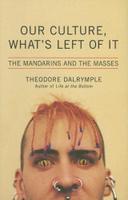Inner Lives
In contemporary entertainment we hear almost nothing about the character of the characters: Those who fill our movies, TV shows, and contemporary novels are expected to be simply entertaining, rather than kind or truthful or fair. Yet if you open the pages of Charles Dickens or Jane Austen or any writer from before our age, you find that the inner landscape of each individual is extremely important, and in fact, a vital thread in the plot. Much of Pride and Prejudice hinges on whether D'Arcy is too prideful to be a good husband. David Copperfield must mature from being intoxicated with a silly, childlike woman to loving a woman who is noble and wise.
Earlier generations knew what we have largely forgotten, that it matters what kind of person you are. It matters if you are trying to become more Christ-like every day – more fair, more kind, more honest. It matters whether you are growing into the "image and likeness" of God. It matters whether we are growing in light or darkness. "If the light in you is darkness, how great is the darkness!" (Matthew 6:23)
Hunter wrote a piece on Sept. 11 about the difference between books and movies:
Storytelling movie-style is different than storytelling prose-style. The primary issue in prose is motive: You have to understand why the people do what they do, or else the whole shebang falls apart as illusion. The minds of the characters have to be consistent to be believable; action has to flow from character. Fiction writing is about what happens internally, even if lots of guns come out and stuff blows up.
Movies don't have time for all that internal crap. They can't go inside, so what's the point? They can show only from a distance, and if people do things -- silly things, random things, violent things -- we still accept it because, well, we're seeing it. It's there, it's reality, we go with it. Then there are pressing commercial obligations: They have seven minutes to catch the attention of a 17-year-old boy whose brain has been fried by video games and who, when he's not lost in cyberspace, primarily wants to get high or laid, in no particular order. He is the key to their riches; he must be pandered to.




